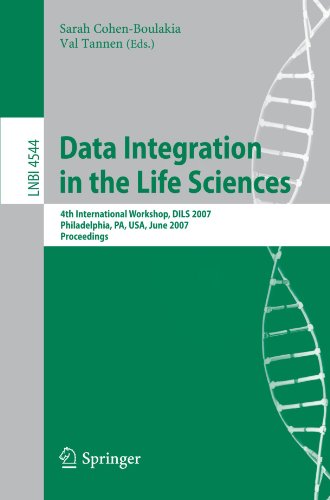

Most ebook files are in PDF format, so you can easily read them using various software such as Foxit Reader or directly on the Google Chrome browser.
Some ebook files are released by publishers in other formats such as .awz, .mobi, .epub, .fb2, etc. You may need to install specific software to read these formats on mobile/PC, such as Calibre.
Please read the tutorial at this link: https://ebookbell.com/faq
We offer FREE conversion to the popular formats you request; however, this may take some time. Therefore, right after payment, please email us, and we will try to provide the service as quickly as possible.
For some exceptional file formats or broken links (if any), please refrain from opening any disputes. Instead, email us first, and we will try to assist within a maximum of 6 hours.
EbookBell Team

5.0
88 reviewsUnderstanding the mechanisms involved in life (e. g. , discovering the biological functionofasetofproteins,inferringtheevolutionofasetofspecies)isbecoming increasinglydependent onprogressmade inmathematics,computer science,and molecular engineering. For the past 30 years, new high-throughput technologies have been developed generating large amounts of data, distributed across many data sources on the Web, with a high degree of semantic heterogeneity and di?erentlevelsofquality. However,onesuchdatasetisnot,byitself,su?cientfor scienti?c discovery. Instead, it must be combined with other data and processed by bioinformatics tools for patterns, similarities, and unusual occurrences to be observed. Both data integration and data mining are thus of paramount importance in life science. DILS 2007 was the fourth in a workshop series that aims at fostering d- cussion, exchange, and innovation in research and development in the areas of data integration and data management for the life sciences. Each previous DILS workshop attracted around 100 researchers from all over the world. This year, the number of submitted papers again increased. The Program Committee - lected 19 papers out of 52 full submissions. The DILS 2007 papers cover a wide spectrum of theoretical and practical issues including scienti?c work?ows, - notation in data integration, mapping and matching techniques, and modeling of life science data. Among the papers, we distinguished 13 papers presenting research on new models, methods, or algorithms and 6 papers presenting imp- mentation of systems or experience with systems in practice. In addition to the presented papers, DILS 2007 featured two keynote talks by Kenneth H. Buetow, National Cancer Institute, and Junhyong Kim, University of Pennsylvania.